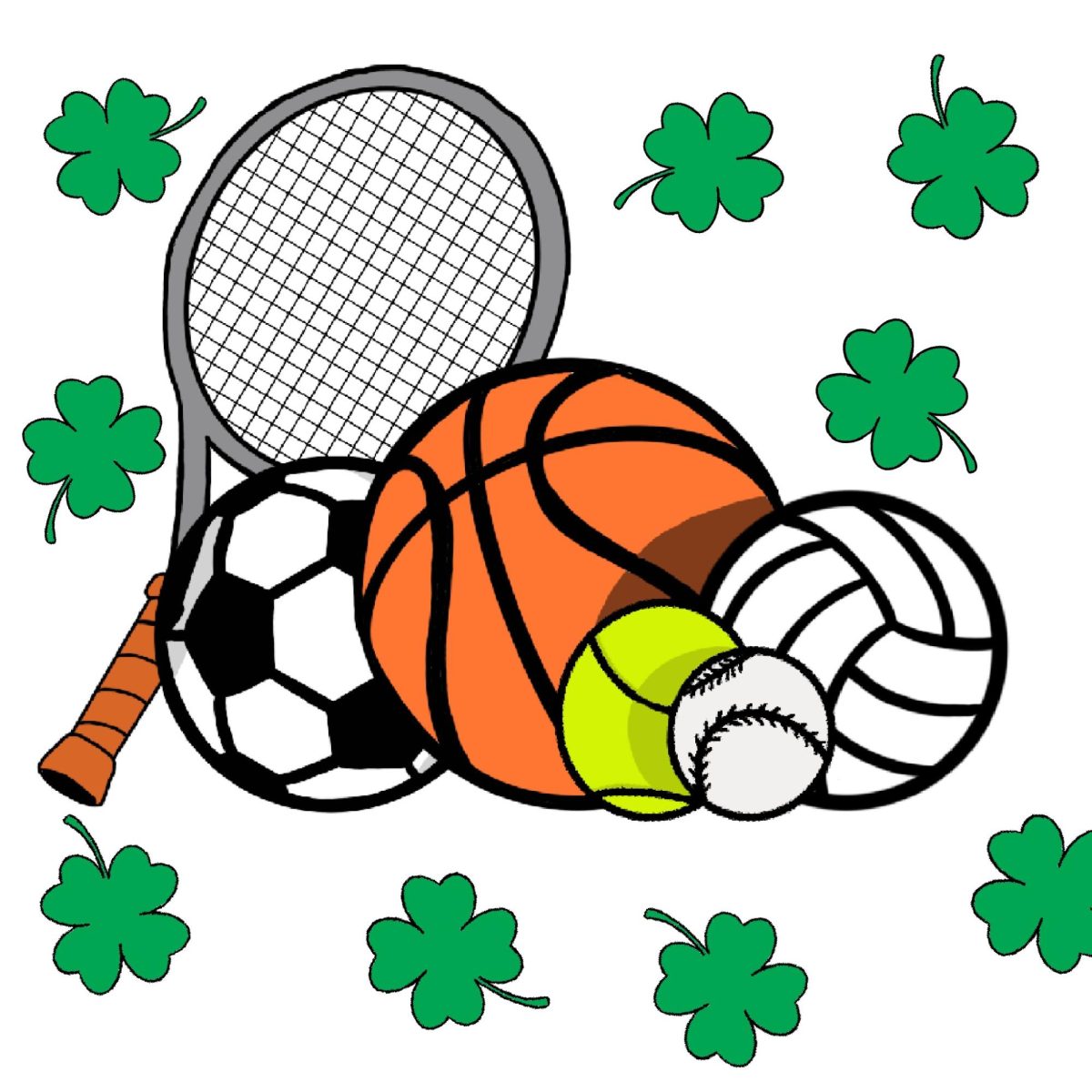
As game day approaches, players often have rituals or superstitions that they rely on to help them win. Whether it is a lucky piece of clothing or a specific warm-up routine, these practices help boost a player’s focus and confidence.
Many athletes have specific rituals and superstitions that they believe contribute to their success in sports. Often, players have a lucky number, typically their jersey number, which they believe helps them win games. Several famous athletes have superstitions that they credit for their performance. For example, Wade Boggs, a Hall of Fame baseball player, had a superstition that eating chicken before a game enhanced his performance, earning him the nickname “Chicken Man.”
Boggs isn’t the only athlete to have these beliefs; Michael Jordan wore his University of North Carolina shorts under his uniform for good luck. Babe Ruth had a superstition of wearing the same pair of socks, while Serena Williams also had the same good luck practice. In addition to superstitions, many athletes also have pre-game rituals that get them ready for the game. For instance, Kobe Bryant had a pre-game ritual of shooting a specific number of shots from designated spots on the court to “get in the zone.” Another was Peyton Manning, who became known for his extensive pre-game prep of studying game film and doing a specific warm-up drill to mentally ready himself for the upcoming game. While most of these pre-game rituals involve some form of physical warm-up, many athletes have a ritual that doesn’t include exercise. For example, Usain Bolt, a sprinter, listens to music to help get into the right mindset before his races.
It’s not just celebrities that have these rituals and superstitions; many other school athletes do, too. According to junior Bri Dickamore, a dancer, “I would always take my pink water bottle. I think it’s a good luck charm. Before my competitions, I always run through the routine several times, and anytime I do, I pick out something that I felt I improved on and would write it down to compare to the previous week.”

This shows that many athletes use pre-game rituals and beliefs to help them play better and win. Although many of these are just superstitions, believing in these rituals helps players mentally focus, gives a little confidence boost, makes them more prepared, and can help regulate their emotions. Certain warm-ups or routines help reduce stress, keeping players focused. They also help physically prepare them as many warm-ups include stretching and exercising. Superstitions, on the other hand, help psychologically. Believing in these superstitions brings them confidence, often reduces anxiety, and helps them come into a game with a good mindset. Ultimately, these rituals and superstitions are more than just habits; they serve as mental tools that help athletes manage pressure and enhance performance. By doing these practices, athletes create a sense of control and familiarity, which can be crucial in games.